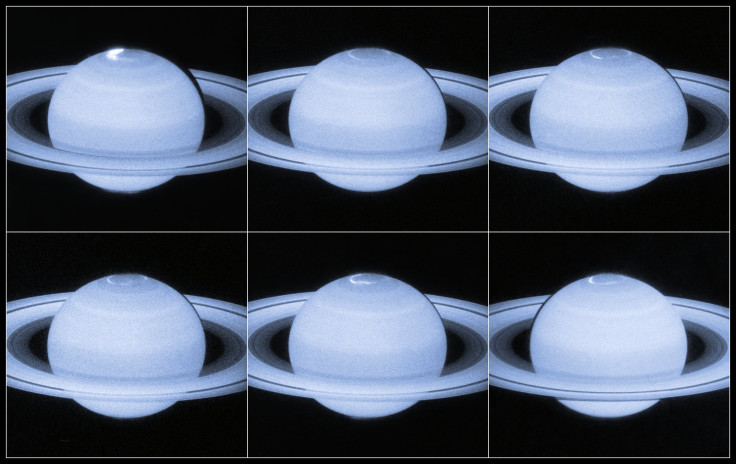Saturn Aurora Mystery Solved: Ringed Planet’s Collapsing ‘Magnetic Tail’ May Cause Light Show [PHOTO]
Saturn’s auroras may have more in common with Earth’s own dramatic light show than previously believed. A new study states Saturn’s collapsing “magnetic tail” is responsible for the light show on the ringed planet, much like how auroras are formed on Earth.

Saturn, much like Earth, has a magnetic tail, or magnetotail, which extends away from the planet. According to NASA, solar wind, charged particles from the sun, pulls Earth’s magnetic field away from the planet creating the magnetotail. Saturn’s own magnetic tail is created in the same way and its collapse is responsible for the auroras observed at the planet’s north and south poles.
Researchers from the University of Leicester used three years’ worth of observations from the Hubble Space Telescope’s Advanced Camera for Surveys to determine what was responsible for Saturn’s auroras. Hubble’s Advanced Camera for Surveys captures images in ultraviolet light and during a dramatic light show, the researchers found the “smoking gun” responsible for Saturn’s auroras. The auroras are the result of the collapse of Saturn’s magnetic tail, due to a strong wave of charged solar particles hitting the planet.
Lead researcher Jonathan Nichols said in a statement, “Our observations show a burst of auroras that are moving very, very quickly across the polar region of the planet. We can see that the magnetotail is undergoing huge turmoil and reconfiguration, caused by buffering from solar wind. It's the smoking gun that shows us that the tail is collapsing.” The process is similar to what causes the northern and southern lights on Earth as disturbances in the planet’s magnetic field are responsible for the auroras.
Nichols previously worked on Hubble and Cassini observations of Saturn’s auroras in 2013 and a video combining the images of the “dancing auroras” can be viewed below. The current study of Saturn's aruroras was published in Geophysical Research Letters.
© Copyright IBTimes 2024. All rights reserved.






















